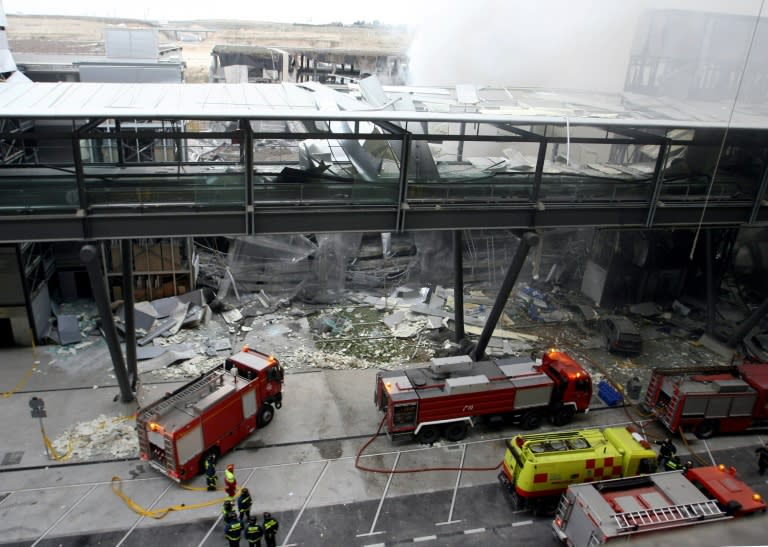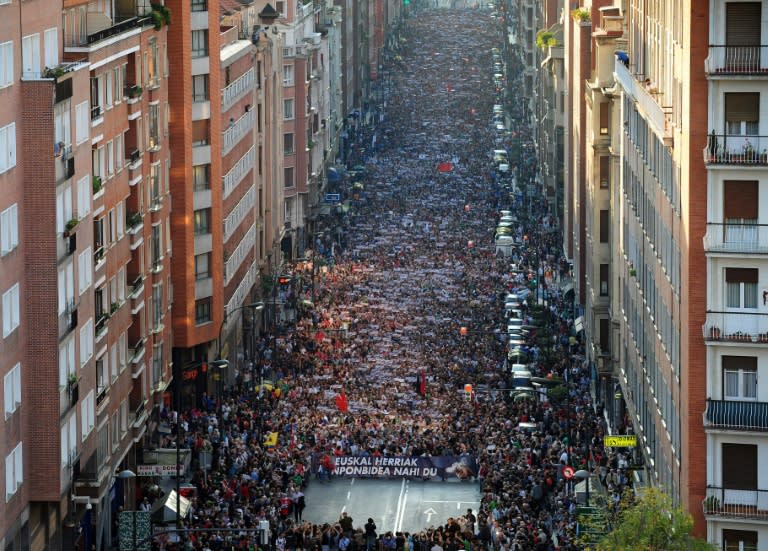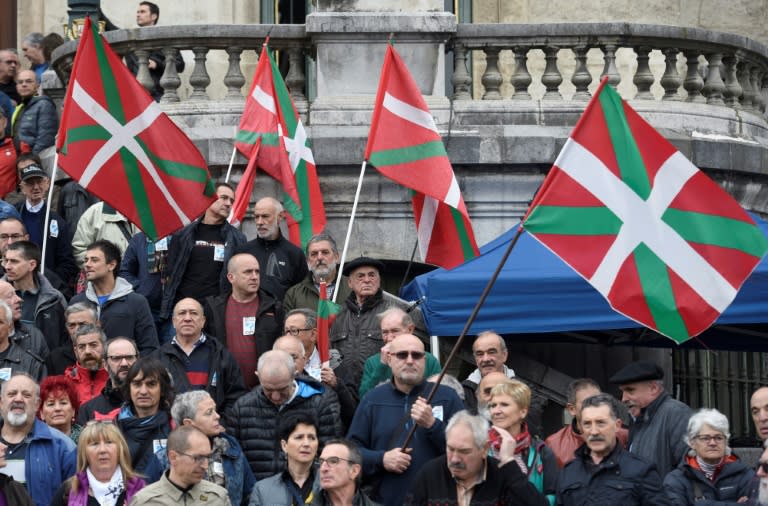Basque separatists ETA apologise in step to disbandment
Basque separatist group ETA asked forgiveness from its victims for the first time Friday for the "pain" caused by its decades-long campaign of violence, in a penultimate step towards disbandment. It was the most comprehensive apology yet by the group, which a mediator says is set to announce its dissolution in a historic declaration within days. ETA waged a nearly four-decade campaign of bombings and shootings for an independent Basque state in northern Spain and southern France. "We have caused great pain throughout this long period of armed struggle.... We know this harm cannot be mended," it said in a statement published in the Basque newspaper Gara. "We wish to express our respect to all the victims of ETA's actions, in that they were harmed as a consequence of the conflict, whether they were killed, injured or harmed in any other way. We are truly sorry." - Asking forgiveness - Created in 1959 at the height of Francisco Franco's dictatorship, ETA is blamed for the deaths of at least 829 people before it announced a permanent ceasefire in 2011. "Due to the various requirements of the armed struggle, our activity has harmed a number of people who had no responsibility whatsoever in the conflict," Friday's statement said. "We have caused grave harm, which cannot be put right. We ask the forgiveness of these people and their relatives." Maria del Mar Blanco, leader of a victims' campaign group AVT, complained that the call for forgiveness did not extend to those the group considered legitimate targets, such as police officers and politicians. "I find it shameful and immoral that they should make a distinction between people who deserved a bullet in the back of the head or a bomb in their car and accidental victims who did not deserve it," she said. Politicians such as the Spanish Basque Country's conservative regional nationalist president Inigo Urkullu echoed the view that ETA should have the same consideration for all its victims. - 'Strength of the state' - Attacks by ETA and retaliation by Spanish state death squads traumatised Spain, peaking in the 1980s and 1990s. In the Basque village of Portugalete, Ivan Ramos, whose mother was killed by ETA in 1987, welcomed the announcement with joy and relief on Friday. "My mother fought a lot for all this," he said. "The fact they have asked for forgiveness and are disbanding is really poignant." ETA was weakened in recent years by the arrests of its senior leaders. It renounced violence in 2011 and surrendered its arms last year. Spain and France refused any dialogue with the group, insisting it disband unconditionally. Spanish Prime Minister Mariano Rajoy's government celebrated Friday's apology as a vindication for his refusal to compromise with ETA. "This is nothing less than a consequence of the strength of the state of law that has conquered ETA with the arms of democracy," it said in a statement. "It should have asked for forgiveness a long time ago." - Unconditional disbandment - Some 300 ETA members are imprisoned in Spain, France and Portugal and up to 100 are still on the run, according to prisoners' families' group Forum Social. The group hopes prisoners will be moved to prisons closer to their families after the disbandment. It also hopes that ETA members jailed for non-violent offences may gain conditional release. Spanish Interior Minister Juan Ignacio Zoido has warned however that ETA "will get nothing (in return) for disbanding". Left-wing Basque politicians hope the disbandment will boost them ahead of municipal elections in 2019. ETA will make an announcement on May 5 or 6 in the French Basque region, "failing a last-minute surprise", International mediator Alberto Spektorowski said on Thursday. "It will be clear that a chapter of the history of the Basque Country and of Spain is closed."




